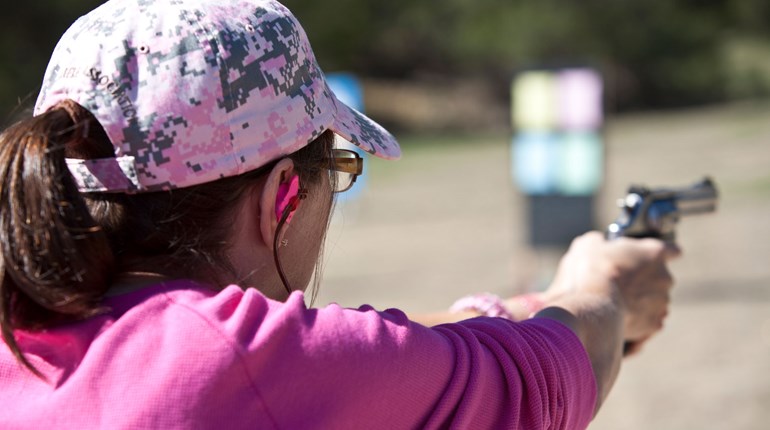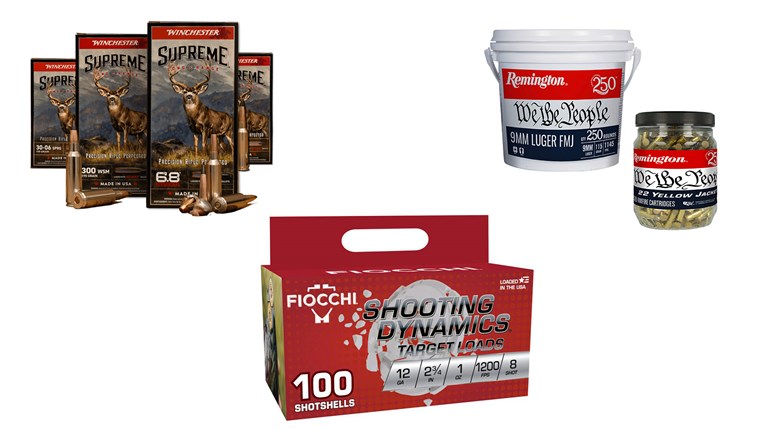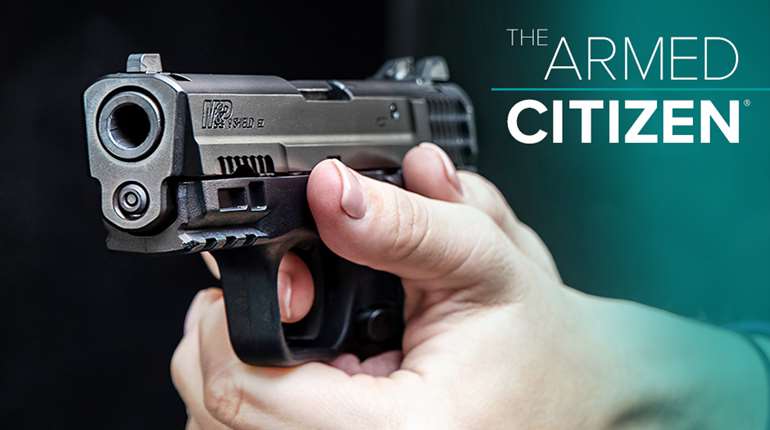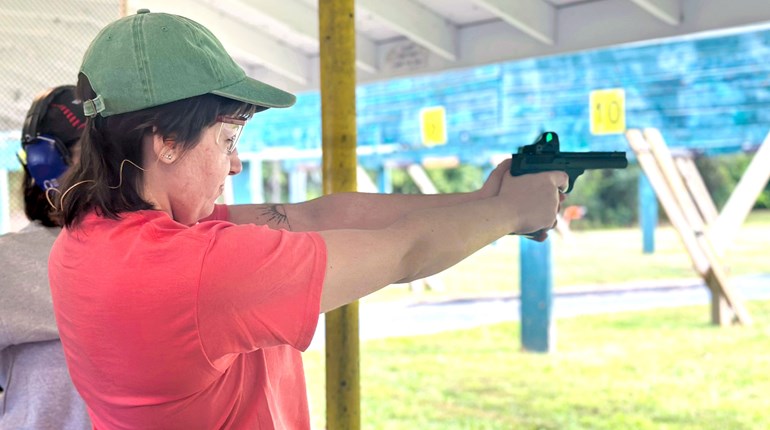
You might have noticed some handgun ammo—Federal’s Syntech is probably the most popular brand—with brightly colored bullets, and wondered what was the deal. I’m not talking about bullet tips, like you see on rifle hunting cartridges, but the whole projectile. The most common color is red, leading to the nickname “lipstick ammo,” but you’ll find other colors as well, including blue and purple. What’s with the color, and what’s the point?

This ammo is loaded with projectiles that are coated in polymer. Why? Well, for one thing, it allows for easy identification. A manufacturer can design target rounds with one color, training rounds with another color, and defensive rounds with a third color—and in fact, this is what Federal does. Its Syntech target rounds are red, its training rounds are purple, and its defensive rounds are blue. But the primary reasons manufacturers coat bullets in polymer are more related to function.
In general, polymer-coated bullets offer smoother performance and less friction because there’s that smooth polymer surface heading down the barrel of the gun greatly reduces metal-on-metal contact. That smooth surface can also lead to fewer jams due to smoother feeding when compared to non-coated bullets. Theoretically, this could make them more consistent round to round when compared to other types of projectiles. On top of that, less friction means less heat, and a barrel that doesn’t heat up as quickly might be important to you if you’re a high-volume shooter.

The polymer coating encapsulates and contains the lead of the bullet, which is a major benefit to handloaders and anyone who is concerned with lead exposure, as it leads to less vaporized lead and debris in the air after each shot. This is of particular benefit to shooters who utilize an indoor range, where there’s no wind to clear the air.
Lead, as a soft metal, leaves residue in a gun’s barrel, which eventually has to be cleaned because it will start to affect bullet performance, accuracy and more. But a bullet encased in polymer will not leave lead or copper in the barrel, thereby reducing fouling and essentially leaving you with a cleaner gun at the end of a day at the range. And who doesn’t love an easier cleaning job?
If you shoot steel targets, you might find polymer-coated bullets a real advantage. They deform and splatter upon impact with steel the same way regular hard cast lead bullets do, but they tend to splatter into smaller pieces instead of sharp jacket fragments. In other words, the coating on the bullet leads to reduced ricochets and shrapnel when shooting steel targets.
There are a couple of minor limitations you should be aware of. First, if you reload, be sure not to slice the polymer coating with the casing, or the resulting ammo will be less accurate. Second, some tests indicate that polymer-coated bullets can have slightly lower speed and energy than their non-polymer-coated counterparts, but this is a negligible difference that won’t be noticeable enough to matter with handgun ammo. Third, it’s possible for the polymer coating to melt at high velocities, which is why its use is limited to handgun bullets. The melting would lead to inaccuracy at long ranges, so this treatment isn’t generally suitable for rifle bullets.

Personally, I’ve shot hundred of rounds of ammo loaded with polymer-coated bullets—namely, Federal’s Syntech—and I don’t notice much of a difference in performance either way. I definitely have noticed that the gun (and my hands) are considerably cleaner at the end of the day, and I don’t recall ever taking a tiny chip of splashback to the skin when shooting steel with polymer-coated projectiles, which is more than I can say for other ammo. Those benefits are more than enough to keep me buying it.
Bottom line: Polymer-coated bullets tend to shoot smoother and cleaner than other bullets, and they can be safer when shooting steel targets. They’re worth a shot, particularly for anyone who shoots indoors, anyone who is concerned about lead exposure, anyone who shoots steel, and anyone who shoots a lot and wants to reduce cleaning time.















































